Publications
Articles, publications, books, tools and multimedia features from the U.S. Institute of Peace provide the latest news, analysis, research findings, practitioner guides and reports, all related to the conflict zones and issues that are at the center of the Institute’s work to prevent and reduce violent conflict.
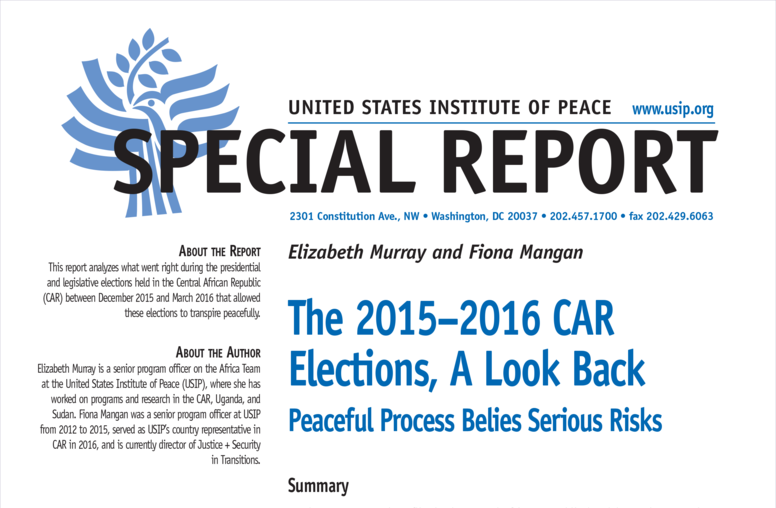
The 2015–2016 Central African Republic Elections, A Look Back
Plagued by successive coups and waves of violent conflict since its independence in 1960, the Central African Republic managed to hold its first peaceful elections in late 2015 and early 2016. Fears of widespread violence proved unfounded. This report focuses on what went right in those elections and how those conditions have not held a year later, allowing violence to return to the country.
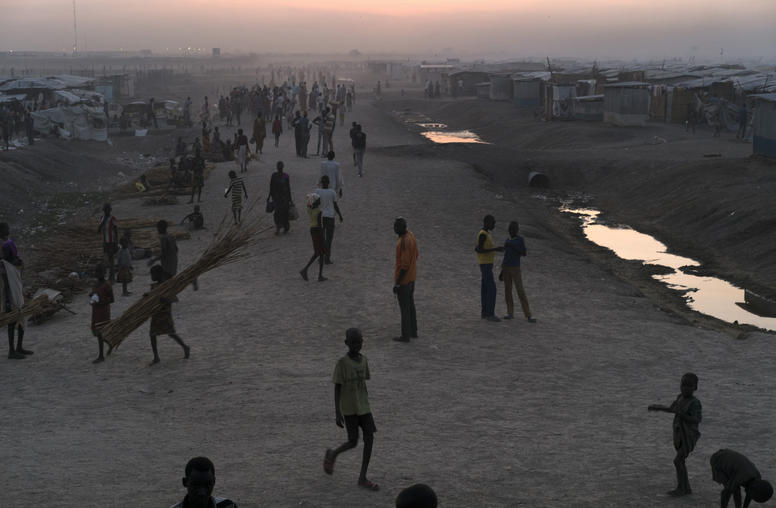
South Sudan Disaster Demands U.S. Attention, Coons Says
U.S. Senator Chris Coons, back from a recent trip to South Sudan, urged the Trump administration to make the conflict and humanitarian crisis in the African nation a priority. He also suggested that a special envoy might spur a peace process among the country’s warring factions.
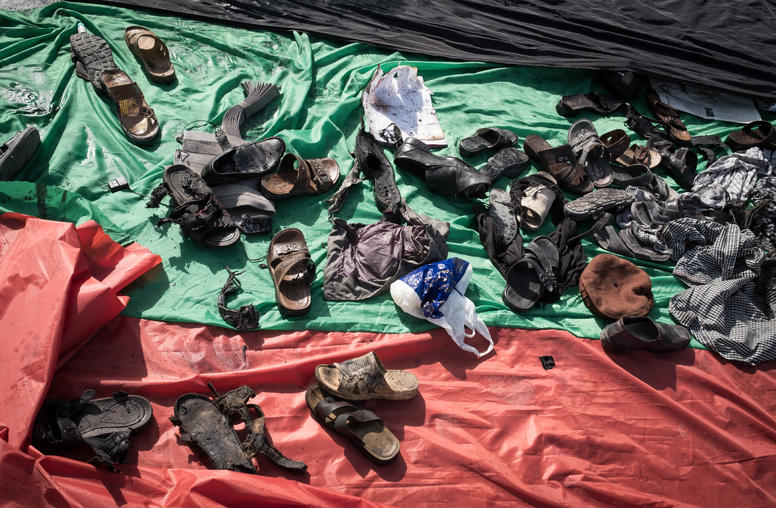
South Asia: Rising Extremism Opens Way for ISIS
Across South Asia, complex strains of extremism are opening the way for the Islamic State and destabilizing governments. From elements in the Afghan Taliban to the ascent of Hindu nationalism in India, extremists are drawing the region deeper into volatile internal and external conflicts, according to experts on religion and extremism speaking recently at the U.S. Institute of Peace. There are no quick ways to reverse the trend, they said. But steps that could slow radicalization include bolstering free speech, attacking terrorists’ financial networks and undermining the myth that a long-ago caliphate ruled over a perfect society.
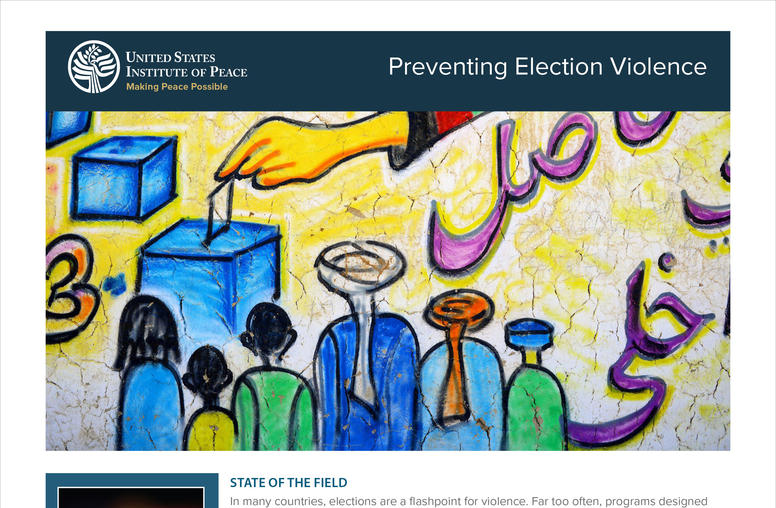
Preventing Election Violence
In many countries, elections are a flashpoint for violence. Far too often, programs designed to prevent election violence are based on intuition instead of evidence, or efforts concentrate solely on logistical or technical support on election day. When prevention efforts fail and violence erupts, officials may respond with a counter-productive crackdown, citizens lose trust in the ability of government and the rule of law to protect them, and years of development efforts are reversed.
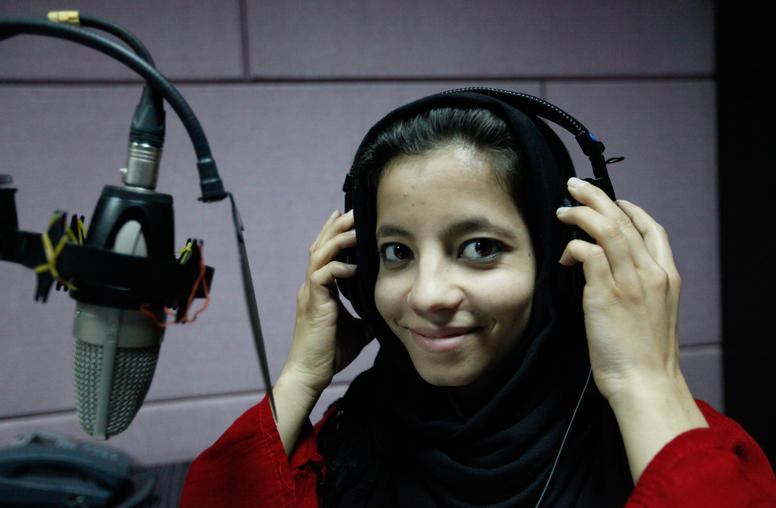
U.S. Democracy Assistance
USIP Board Chair, Stephen J. Hadley, testimony on U.S. democracy assistance before the State, Foreign Operations, and Related Programs Subcommittee of the Committee on Appropriations, of the United States Senate on Tuesday, May 9, 2017.
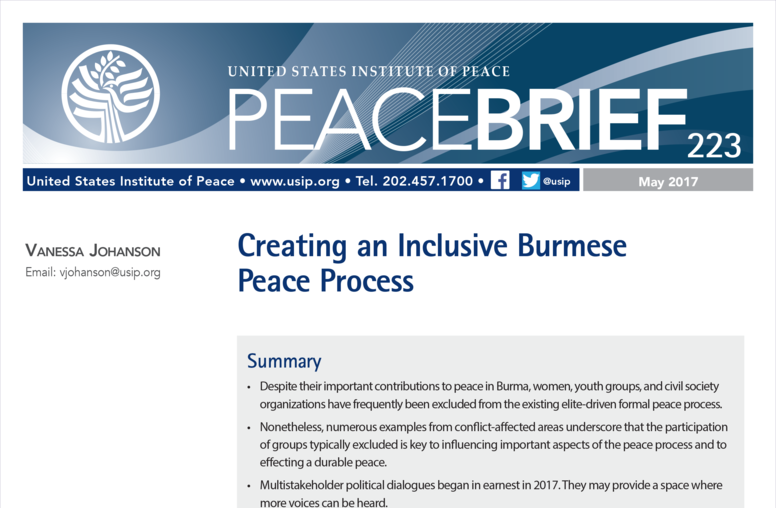
Creating an Inclusive Burmese Peace Process
Burma's peace process reached a milestone with the October 2015 signing of the Nationwide Ceasefire Agreement. The Aung San Suu Kyi government, the most democratic in living memory, has prioritized the peace process; however, many women's and youth groups and other civil society organizations have been marginalized during the negotiations, their voices on important topics silenced in favor of elite input. As a result, a parallel track of activism aimed toward peacebuilding outside the formal structure has developed. The international community should support both tracks while continuing to urge the formal inclusion of marginal groups in the main process.
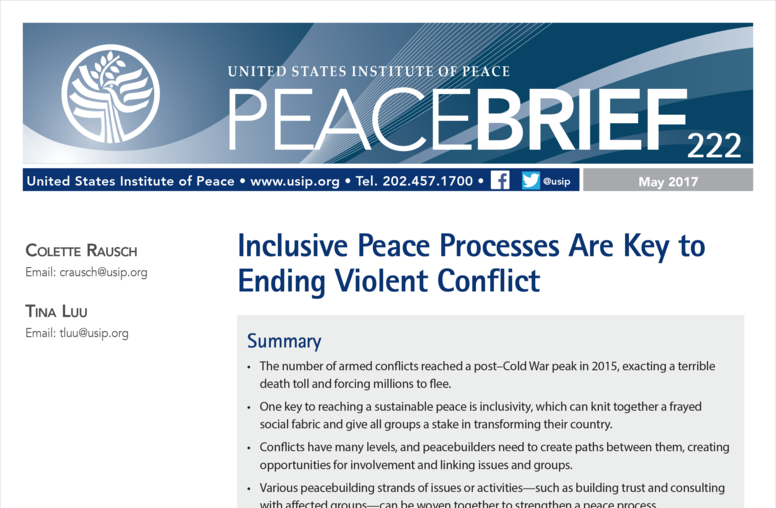
Inclusive Peace Processes Are Key to Ending Violent Conflict
Violent conflict, refugee flows, and internal displacements present international policymakers and practitioners today with unprecedented challenges. Tackling these problems requires not only signed peace agreements but also sustainable peace. It is not enough to bring armed actors to the negotiating table, however. To be effective, the peace process needs to be inclusive and participatory. But what constitutes inclusive participation, and how can peacemakers and peacebuilders achieve it in their own, very different societies? Drawing on discussions in a public forum held in early 2017, this Peace Brief looks at the elements of peacebuilding and explains how critical inclusive participation is to that process.
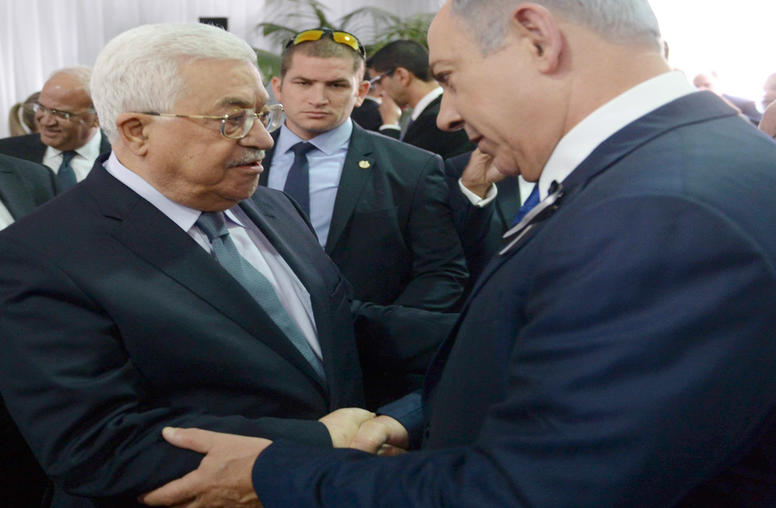
As Abbas Meets Trump, This Time Might Be Different
When President Donald Trump hosts Palestinian President Mahmoud Abbas on May 3, their discussion is bound to pivot on how to get the Palestinians and Israelis back to the negotiating table in a format that will have a better-than-even chance of success. In a March telephone conversation between the two, the new U.S. leader “emphasized his personal belief that peace is possible and that the time has come to make a deal,” according to the White House.
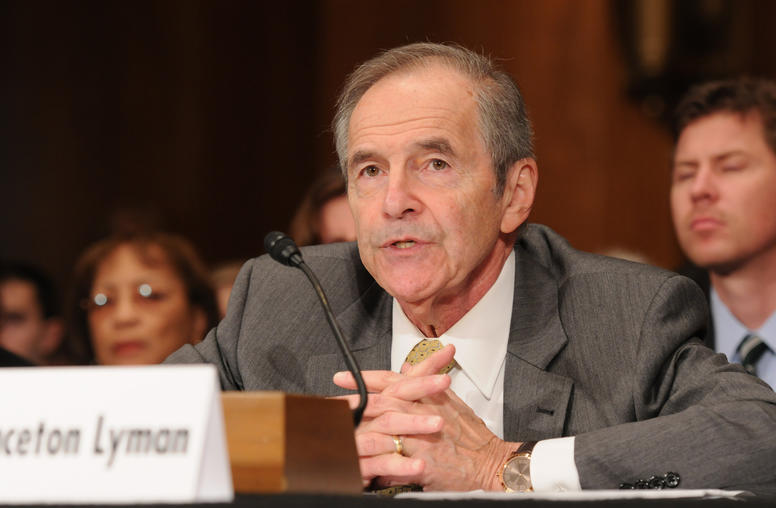
The Questionable Case for Easing Sudan Sanctions
Amb. Princeton N. Lyman testified before the House Foreign Affairs Subcommittee on Africa, Global Health, Global Human Rights & International Organizations
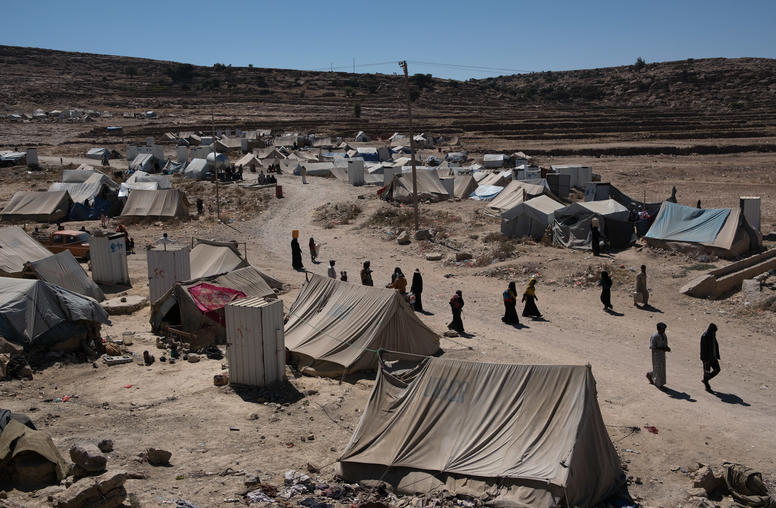
Beneath the Saudi-Iran Proxy War in Yemen, Part 2
The strategic clash between Saudi Arabia and Iran in Yemen masks multiple layers of conflict underneath that have deepened—and in some ways altered—the country’s fractures in local politics, society and security. The chaos has devastated Yemen, one of the world’s poorest countries, and has the potential to burst beyond the nation’s borders and further destabilize an already troubled region. It also allows the likes of the Islamic State (ISIS) and Al-Qaeda in the Arabian Peninsula (AQAP) to thrive.